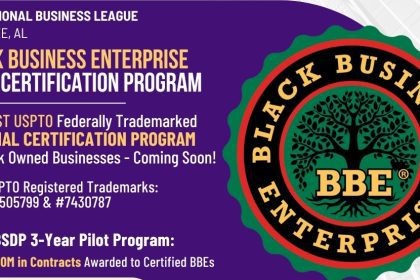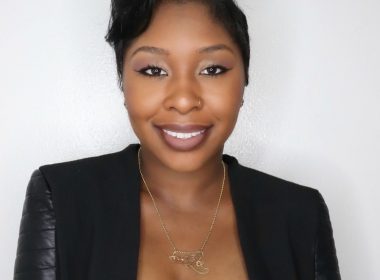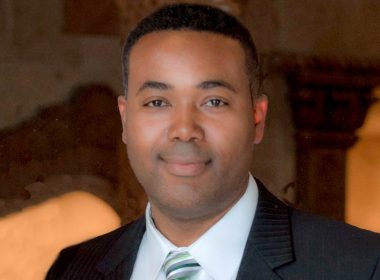 Black Intellectual Devin Fergus teaches social policy and history in the Department of African American and African Studies at the Ohio State University. A senior fellow at Demos, a New York-based think tank dedicated to finding effective policy solutions to issues of economic inequality, Fergus shares how he started on his career path, why he penned his first book and being a scholar.
Black Intellectual Devin Fergus teaches social policy and history in the Department of African American and African Studies at the Ohio State University. A senior fellow at Demos, a New York-based think tank dedicated to finding effective policy solutions to issues of economic inequality, Fergus shares how he started on his career path, why he penned his first book and being a scholar.
What inspired this career path?
Both the beauty and sadness of what I do is that I’m always finding inspiration. I’m inspired by the struggles and successes of the sixties. The progressive moments of interest convergence that led to successful pro-consumer policies like Prop 103 in California inspires me to try to work to create greater change in consumer financial policies. I’m also inspired by the silent, daily struggles of consumers, workers and families we see each day who refuse to acquiesce to the narrative of nihilism. I’m also inspired by the emerging voices in the profession — and groups like Closing the Racial Wealth Gap — that are beginning to show a generation of political-economic policies (e.g. austerity, student loan programs, Garn-St. Germain Act) are not merely morally problematic but unsafe and unsound economically.
I also am constantly reminded of the importance of what I do. I went on a sort of listening tour a few years back and traveled the country speaking with individuals from various walks of the financial sector. There, I heard firsthand the impact that financial deregulation was having on consumers, especially in urban America.
Please share your educational experience.
I received my BA from NC State, when they regularly vied for ACC titles. Go Pack! I then went to Columbia for two Masters and the Ph.D. There, at Columbia, I studied with intellectual giants (and provocateurs) like Manning Marable.
What is the name of your first book and what inspired you to write it?
My first book is titled Liberalism, Black Power and the Making of American Politics. I wrote the book to challenge people’s general understanding and perception of both liberalism and the black power movement.
What advice would you give someone who seeks to be a professor?
While CareerCast.com recently listed a tenured professor, which I am, as the second most attractive occupation behind only mathematician, the market is saturated for academics, especially in the humanities. There is certainly a need for African American scholars in the sciences, economics, and the emerging interdisciplinary fields like data analytics. My goal has always been to wed academic excellence with social responsibility, but it is a tough job market.
What is your greatest accomplishment?
I’ve yet to achieve it. It’s in my future.
How have African Americans grown since the Jim Crow era?
Blacks have made impressive political and employment strides since the end of segregation. Before the passage of the Voting Rights Act, U.S. Justice Department and congressional records show that the black-white voting gap in Alabama was at 50 percent. By 2004, thanks to the passage of the VRA, the gap had shrunk to less than 1 percent. Similar strides have been made in employment in the post-Jim Crow South. (See for example, a wonderful new book that addresses this question, at least in the economic/employment realm. The book is called Sharing the Prize and is written by economist Gavin Wright. In it, Wright makes a persuasive argument that wages and employment opportunities, especially for college-educated blacks in the South, are increasing. He goes on to add that both whites and blacks benefit from this development. Yet, there’s a major lacuna (or gap) missing in Wright’s analysis; while he discusses wages, he doesn’t pay very much attention to wealth, which is intergenerational and transferable. Once you factor in wealth, and not just income, one sees that the financial divide between blacks and whites in the post-Jim Crow South has actually gotten wider. That’s what motivates my work.
What do you think about the situation with Donald Sterling, the owner of the LA Clippers?
The controversy swirling around Sterling just goes to show that we live in a post-racist nation but, definitely, not a post-racial one. In the post-racist society we now live explicit racist language or “taste-based” racism is frowned upon and publicly rebuked. But that doesn’t mean there aren’t structures or systemic mechanisms that perpetuate and, indeed, exacerbate white privilege and advantage. Los Angeles — the same city that gives us Donald Sterling, universally ostracized for his racial remarks —has for decades allowed the massive transfer of financial wealth from black communities to white communities thanks to what I describe as “PC Profiling” in auto insurance, whereby rates are determined less by how one drives than where one lives. By PC I mean both “postal code profiling” as well as “politically correct” profiling. So it’s no longer “PC” or politically correct to use explicitly racist language, as we saw with Sterling. But a post-racial world means blacks live with policies that, for example, still sanction the use of zip codes as a proxy for racial neighborhoods in calculating insurance rates — a practice that transfers hundreds of millions of dollars from black to white households each year in almost every state except California. A post-racial world would address not just “anti-black language;” it would also target supposedly color-blind policies, like the ones in auto insurance, which have a disparate racial impact.
What do you think about the racial wealth gap in America?
It’s perhaps the most ubiquitous problem to ever confront black America. Today, black households are worth less than 7 cents to the dollar of white households. It’s not like black America can hop on the Underground Railroad to escape the gap, as was the case during the antebellum period. Nor can blacks opt to “migrate” their way to the promised land, as was the case during Jim Crow. It affects nearly each and every African American without respect to region, class standing, or color. To be plain, the racial wealth gap may be the most universalizing experience for black America since the middle passage.










